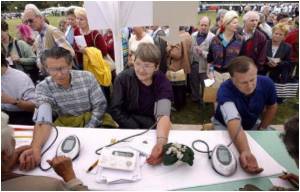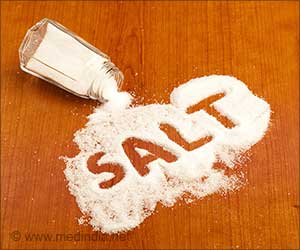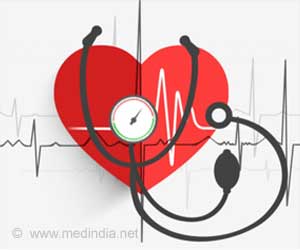
Overall, the prevalence of high blood pressure among U.S. adults did not change over the last decade (1999–2008). However, there have been significant increases in high blood pressure awareness, treatment, and control among persons with high blood pressure over this same time period.
The lack of change in the prevalence of high blood pressure from 1999–2000 through 2007–2008 was consistent among all population subgroups defined by sex, age, and race and ethnicity. Among adults with high blood pressure, there were increasing trends in the proportion who were aware of their condition among most demographic subgroups; the exceptions were those aged 18–39 years and Mexican-American adults. The percentage who were treated with medication to control their blood pressure increased from 1999–2000 through 2007–2008 for all groups except those aged 40–59 years. The percentage whose blood pressure was controlled increased among all population subgroups over this time period, the report said.
“I'm not surprised that more and more young people are being treated for high blood pressure since the incidence of obesity, a contributing cause for high blood pressure, is increasing in this age group," said Dr. Randal Thomas, a cardiologist at the Mayo Clinic in Rochester, Minn.
"With increasing obesity and diabetes in younger populations, clinicians may be more aggressive about recognizing risk factors for cardiovascular disease, like hypertension, and treating it," said Dr. Carol Horowitz, associate professor of medicine at Mount Sinai School of Medicine.
It's possible also that more people are adopting heart-healthier lifestyles — reducing salt, for instance, or quitting smoking and exercising.
Advertisement
"It's not as ideal to use medications as to use lifestyle therapy, in my opinion, but at least the blood pressure is being lowered and their risk of heart attack and stroke is being reduced," Dr Thomas said.
Advertisement
A CDC spokesman said there could be a connection to the nation's obesity rate. The latest CDC data indicate the obesity rate has essentially leveled off for about five years, after many years of a steady climb.
While it's good news that hypertension is being treated more, the problem is far from solved. From the Post:
Even if high blood pressure too has plateaued, the actual number is increasing because the nation's adult population is growing — especially the baby boomer-bolstered ranks of people in their 50s and older.
The number of adults with high blood pressure grew from about 59 million to more than 66 million over the 10 years, [study author Sarah] Yoon said.
Other estimates put it at at least 74 million.
"It's nice to see we're making progress with awareness and control, but 30 percent of a big number is a very big number," said Dr. Donald Lloyd-Jones, a Northwestern University preventive medicine specialist who is a spokesman for the American Heart Association.
Source-Medindia













